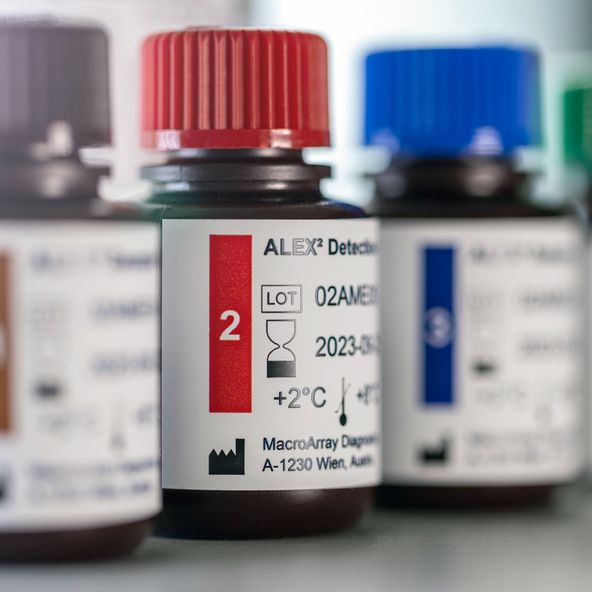Reduce clinically irrelevant results through CCD-blocking


Cross-reactive carbohydrate determinants (CCDs) are sugar structures present in various pollen, fruits, cereals, nuts, spices, and insect venoms and can induce IgE-production in up to 30% of allergic individuals, which can be regarded as a serious problem. The automatic blocking of CCDs through ALEX³ is incredibly important, as it drastically reduces the number of clinically irrelevant results in patient reports.
CCD reactivity can impact the diagnostic accuracy of the quantitative measurement of IgE antibodies in a patient's serum analysis and has major impact on the outcome of IgE testing.

To eliminate CCD-antibody interference, MADx integrated a CCD-blocker to ALEX³ which has the potential to adsorb CCD-specific antibodies. The CCD-blocker is part of every ALEX³ test kit without the need for an additional incubation step.
This case study shows the strong influence CCD-specific antibodies can have on test results. In this case, the automatic CCD-blocking of the ALEX test drastically reduced the number of clinically irrelevant results from 110 to 10.
Read full case study
The important effect of CCD-blocking becomes clear when comparing the results of an ALEX³ test with and without CCD-blocking.
)
SUGAR-FREE ALLERGY DIAGNOSTICS